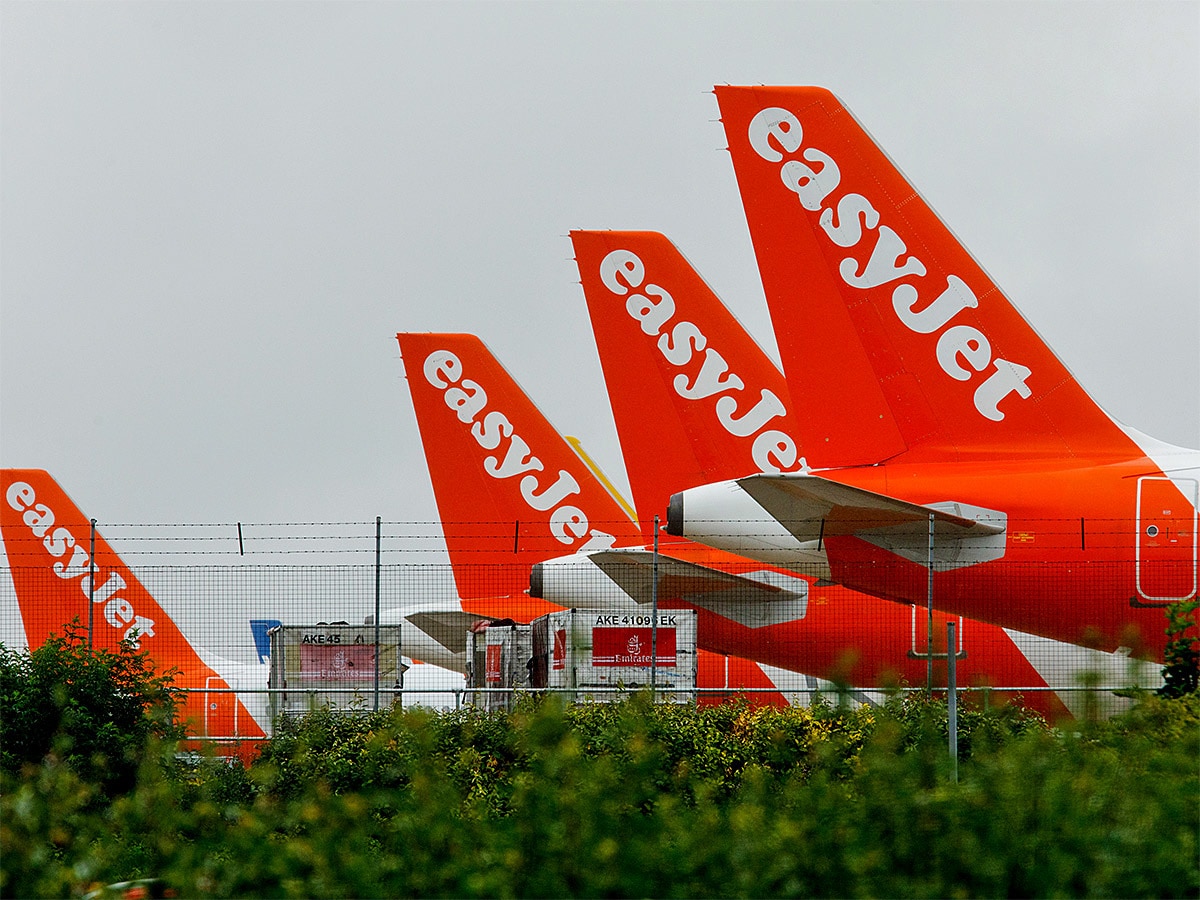To say that EasyJet’s share price is experiencing difficult times would be an understatement. After the low-cost carrier confirmed a first full-year loss in its 25-year history, the stock continued to fall in a tailspin that began at the start of the pandemic. Considering how much altitude EasyJet’s share price has already lost, is it worth the risk or should investors steer clear?
How has EasyJet’s share price reacted?
EasyJet’s share price dropped 3% to 505.80p following the release of its trading update on 8 October, after the budget airline signalled its losses would surpass £800m as the full effect of the coronavirus pandemic is laid bare. The shares eventually closed 2.4% higher on the day at 535.20p, but the reprieve was temporary, as EasyJet’s share price fell a further 3.8% on Friday, closing another difficult week at 512.60p.
Looking back, it is remarkable that EasyJet’s share price reached its 52-week peak in intraday trading at 1,570.00p on 13 February. Since then, the stock has nosedived as the repercussions of the global Covid-19 pandemic hit the industry hard, and EasyJet’s share price plummeted to 410p on 19 March — a decline of 73.9% in just five weeks.
EasyJet’s share price versus growing headwinds
The airline industry is one of the economy’s hardest-hit sectors, with hundreds of flights grounded and staff furloughed as a consequence of government-enforced restrictions to control the virus. EasyJet has so far raised more than £2.4bn since the pandemic hit, including over £400m from shareholders. It has also launched a restructuring programme which will reduce the total headcount by 30%.
Despite these measures, there is an overriding fear that the outlook could deteriorate over the winter months, as infections continue to rise, customers stay away, and strict quarantine measures remain in place. Susannah Streeter, senior investment and markets commentator at Hargreaves Lansdown, told MarketWatch “the gravity of the situation, with customer passenger numbers halved to 48m, has forced it to appeal for urgent government help.”
On top of this, CEO Johan Lundgren has already called for the abolition of air passenger duty and airport testing, in an effort to encourage passengers to fly.
What’s the outlook for EasyJet’s share price?
In the short term, EasyJet is expected to reveal a full-year pre-tax loss of between £815m and £845m in the year to 30 September when it reports on 17 November.
EasyJet has now said it will only fly a quarter of 2019’s capacity between October and the end of the year, down from 38% in Q4, “based on current travel conditions in the market we operate.” With its winter flight schedule decimated, Lundgren has urged the UK government to support the industry: “The UK government urgently needs to step up with a bespoke package of measures to ensure airlines are able to support economic recovery when it comes.”
In response, transport secretary Grant Shapps has set up a ‘Global Travel Taskforce’, to look at ways it can reduce the quarantine period and introduce a testing regime for international arrivals, though EasyJet and the rest of the sector will have to wait until November for its report.
However, it could well be next summer before the sector is able to make any headway, according to Bernstein analyst Daniel Roeska: “Along with other airlines, the company now has to look to summer 2021 for at least a partial recovery in demand. [Without] this, the industry will face an existential threat.”
What do the analysts say?
Despite that gloomy prediction, the consensus recommendation of 12 analysts on EasyJet’s share price is Hold. Five analysts rate EasyJet a Buy, with six rating the stock Underperform. According to MarketBeat, the average 12-month price target is 808.06p, with a high price target of 1,570p and a low price target of 450p. The average price target represents a 66.6% upside on EasyJet’s share price as of 13 October’s close.
EasyJet’s share price is off its March lows, with the airline is taking steps to mitigate the unprecedented situation through cost-cutting and raising funds. That said, the sector will surely require some government intervention to ride out the turbulence, especially given the uncertainty over how long the situation will last.
As such, EasyJet is in the unenviable position of planning for the unknown.
Disclaimer Past performance is not a reliable indicator of future results.
CMC Markets is an execution-only service provider. The material (whether or not it states any opinions) is for general information purposes only, and does not take into account your personal circumstances or objectives. Nothing in this material is (or should be considered to be) financial, investment or other advice on which reliance should be placed. No opinion given in the material constitutes a recommendation by CMC Markets or the author that any particular investment, security, transaction or investment strategy is suitable for any specific person.
The material has not been prepared in accordance with legal requirements designed to promote the independence of investment research. Although we are not specifically prevented from dealing before providing this material, we do not seek to take advantage of the material prior to its dissemination.
CMC Markets does not endorse or offer opinion on the trading strategies used by the author. Their trading strategies do not guarantee any return and CMC Markets shall not be held responsible for any loss that you may incur, either directly or indirectly, arising from any investment based on any information contained herein.
*Tax treatment depends on individual circumstances and can change or may differ in a jurisdiction other than the UK.
Continue reading for FREE
- Includes free newsletter updates, unsubscribe anytime. Privacy policy





